Abstract
Different doses of mefloquine (20 and 30 mg/kg of body weight in children, and 750 and 1000 mg in adults) were tested in controlled clinical trials in 89 children and 60 adults who were semi-immune carriers of Plasmodium falciparum. There was no significant difference in the efficacy of the two doses, either in the children or in the adults. An RI-type resistance was found in 1 adult, when recrudescence occurred on day 7, and in 4 children, who showed recrudescence on day 14. In all 5 patients, spontaneous disappearance of parasites was observed at further parasitological checks, thus indicating that mefloquine has a prolonged action. One patient who vomited after taking the drug was successfully retreated with mefloquine on day 14.
Nausea, giddiness, and vomiting are the three symptoms most frequently attributed to mefloquine. The incidence of nausea and giddiness was similar in both dosage groups, but the adults in the higher dosage group had a significantly higher frequency of vomiting than those in the low-dose group.
In view of the rapid and reliable action of a single dose, mefloquine seems to be the drug of choice for treatment of cases of falciparum malaria that are resistant to 4-aminoquinolines and to sulfonamide-pyrimethamine combinations. A dose of 20 mg per kg of body weight for children and 750 mg for adults is sufficient for treatment of semi-immune persons.
Full text
PDF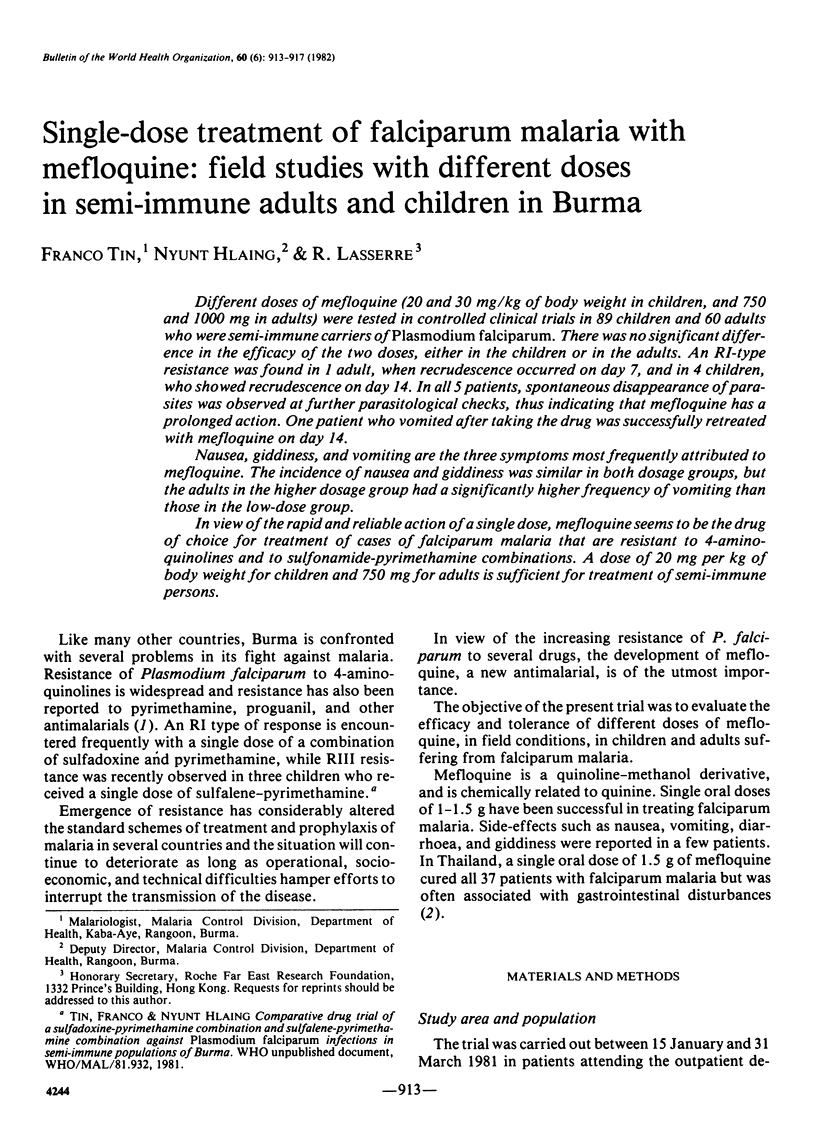
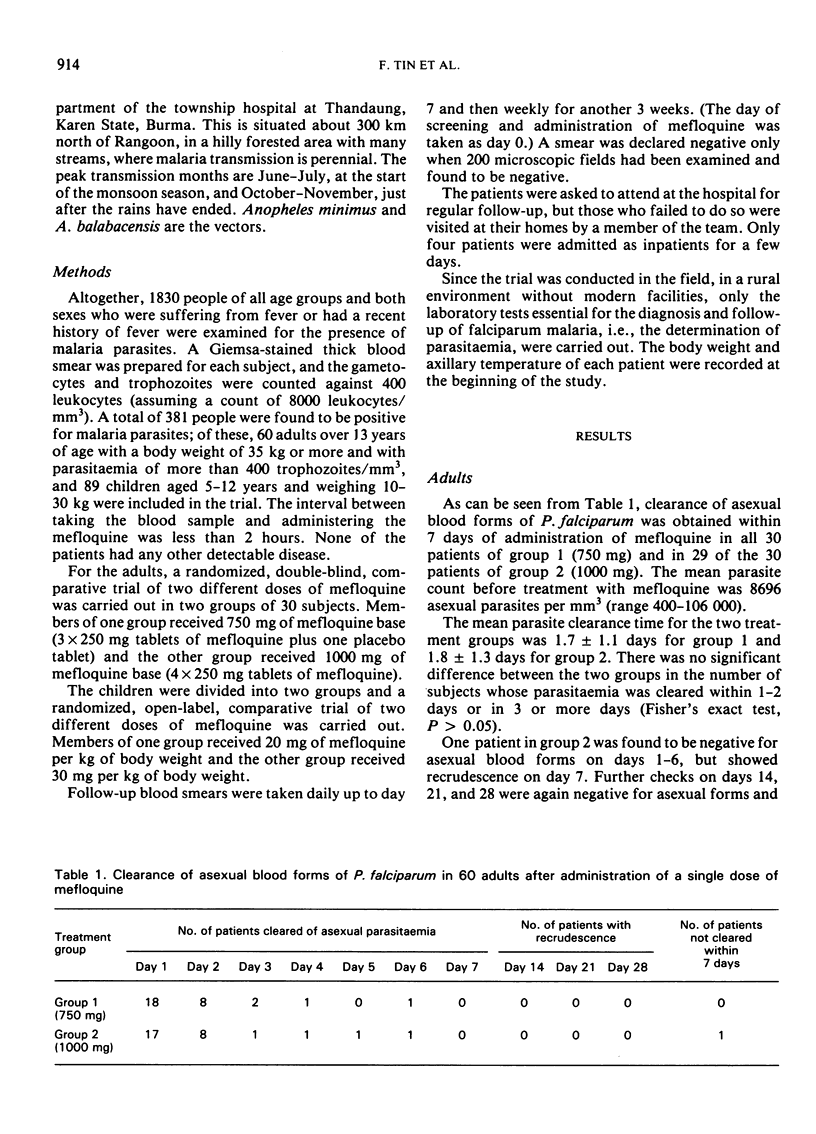
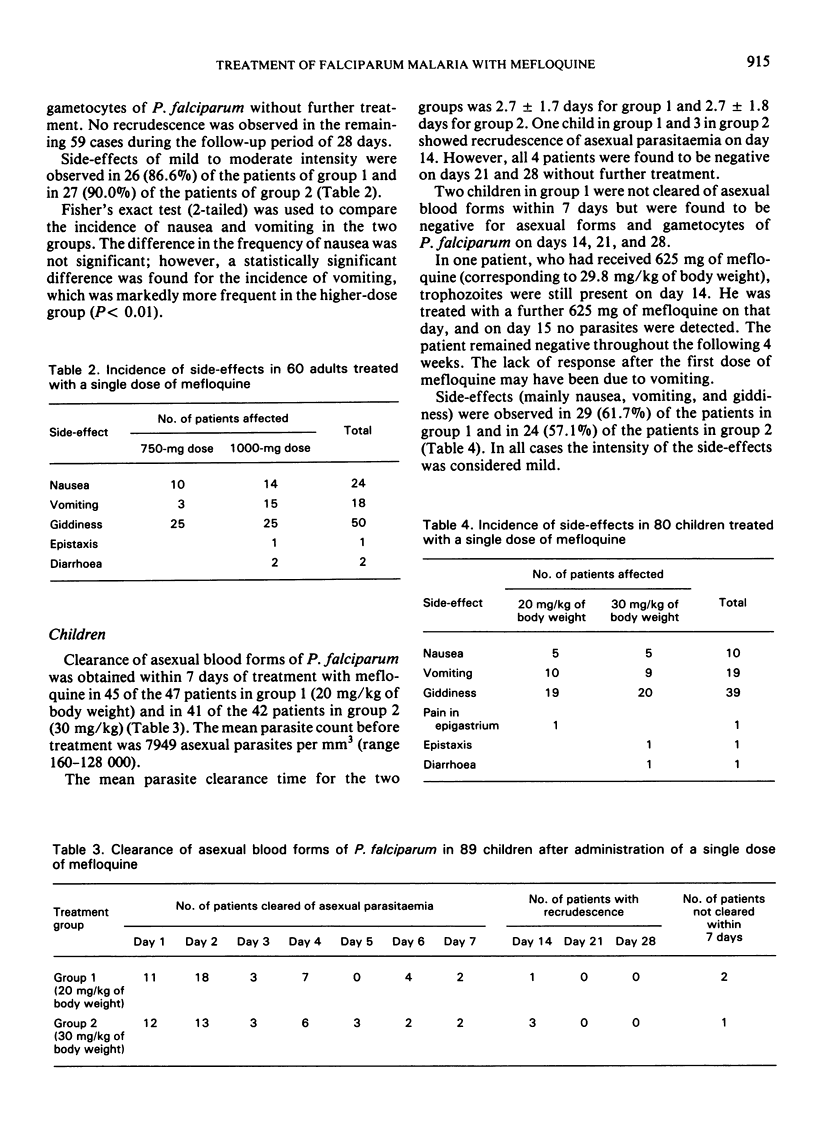
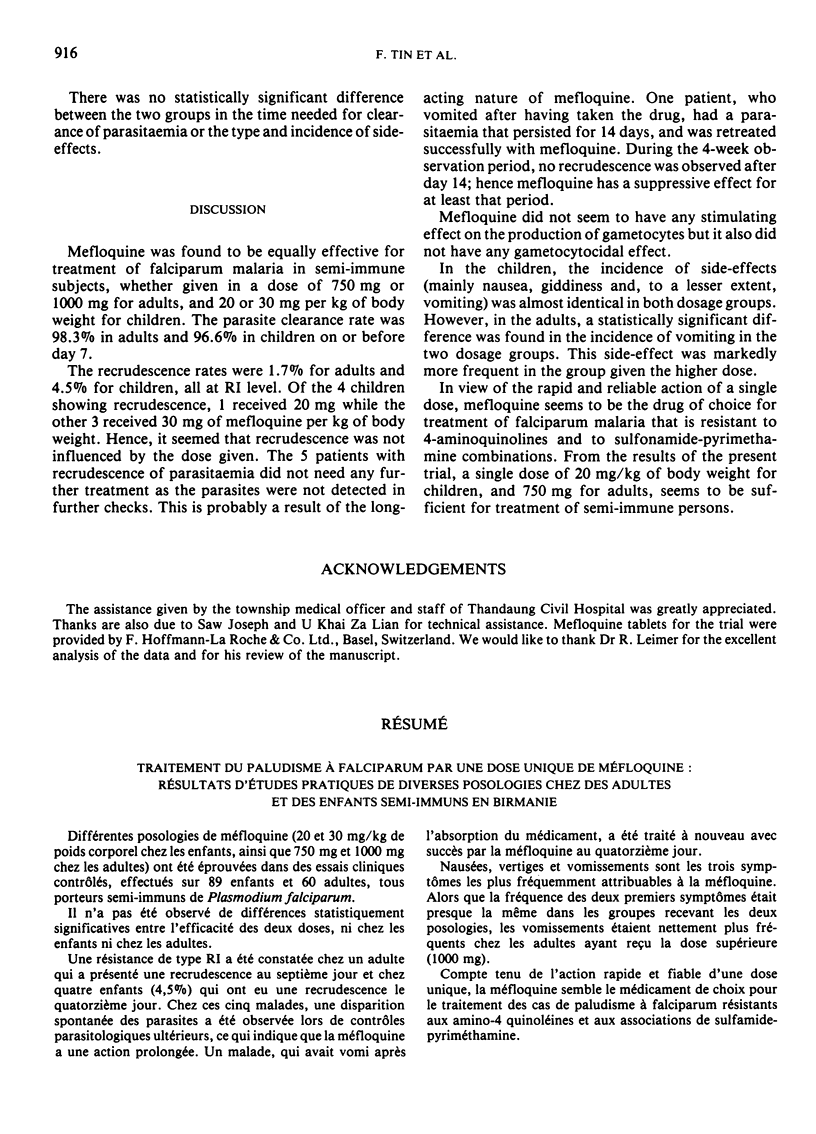
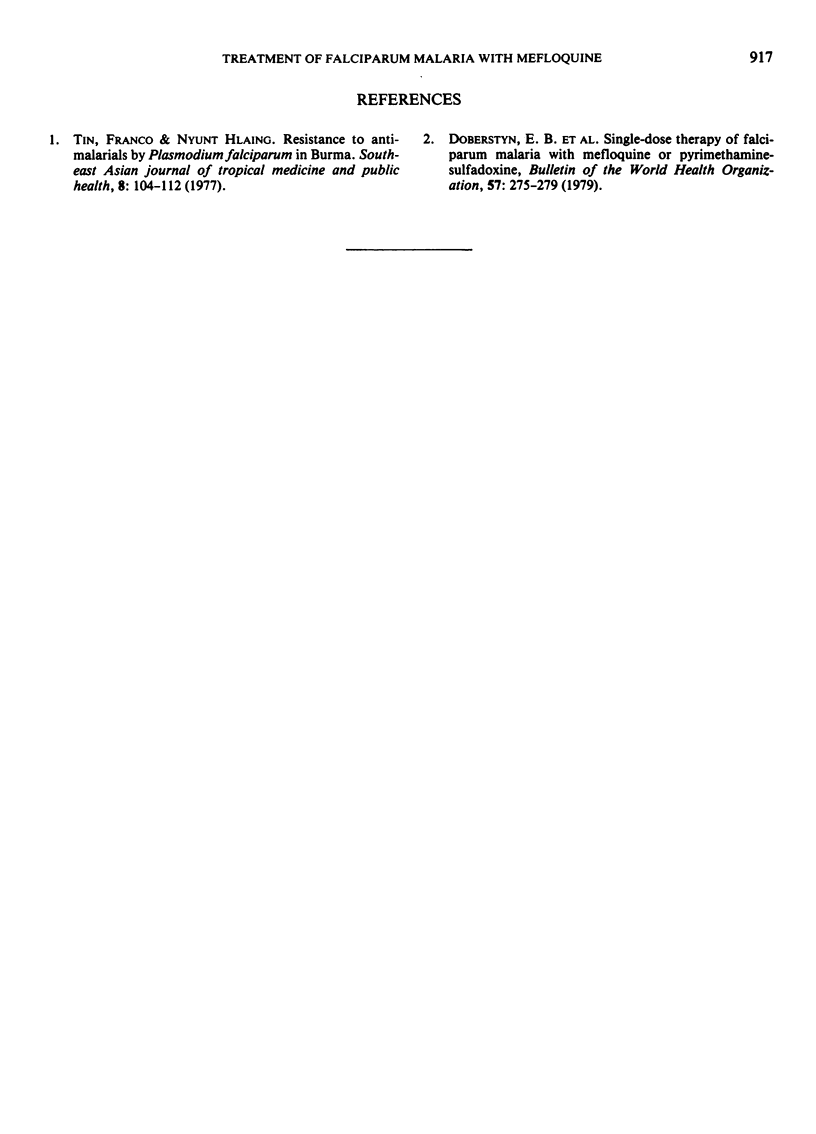
Selected References
These references are in PubMed. This may not be the complete list of references from this article.
- Doberstyn E. B., Phintuyothin P., Noeypatimanondh S., Teerakiartkamjorn C. Single-dose therapy of falciparum malaria with mefloquine or pyrimethamine-sulfadoxine. Bull World Health Organ. 1979;57(2):275–279. [PMC free article] [PubMed] [Google Scholar]
- Tin F., Hlaing N. Resistance to antimalarials by Plasmodium falciparum in Burma. Southeast Asian J Trop Med Public Health. 1977 Mar;8(1):104–112. [PubMed] [Google Scholar]


